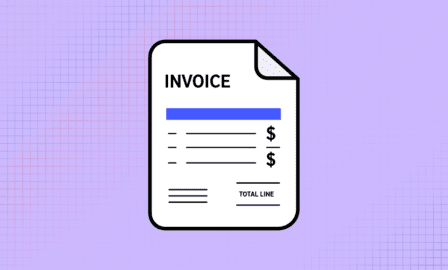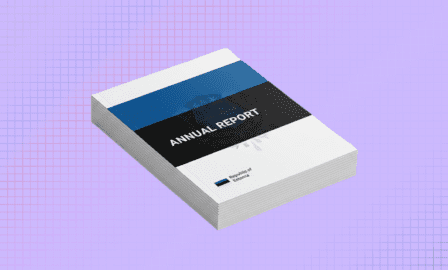Articles
How Unicount company formation works
Building a business can be tough, but starting a company should be simple. If you can register a domain name for your company in a few minutes then why not your company too?
That’s why Unicount was created. Unicount is the simplest way to register an Estonian company. It’s also the simplest way to start a paperless EU company from anywhere in the world. It takes just five minutes. Unicount is used by citizens and residents of Estonia, but also a growing number of people around the world because all you need is an Estonian digital ID, which can be obtained by citizens of other countries living outside Estonia through e-Residency.
Read more
How to create a compliant sales invoice in Estonia (Guide for OÜ and e-residents)
If you run an Estonian OÜ, issuing compliant invoices is not optional. Estonian invoice requirements are defined by the VAT Act (§37) and the Accounting Act, and mistakes can lead to rejected accounting entries, VAT corrections, or unnecessary questions from the Tax and Customs Board (EMTA).
Whether you are VAT-registered or not, whether you invoice EU or non-EU clients, every Estonian company must follow specific invoicing rules. This 2026 guide explains exactly what must be included on an invoice, when invoices must be issued, how reverse charge works, and how long invoices must be stored.
Read more
Legal address vs contact person in Estonia
When you need each and how it works for e-residents
When setting up and running an Estonian company as an e-resident, two terms appear early and often: legal address and contact person.
They are related, but they are not the same and misunderstanding the difference is a common cause of compliance issues later.
This guide explains when a legal address is sufficient, when a contact person is mandatory, and how these requirements apply in practice for e-resident companies in 2026.
Read more
Dormant vs active company in Estonia: How the Tax Board actually decides
For many e-resident founders, the concept of a “dormant company” in Estonia sounds simple. No sales, no invoices, no business. In practice, this is one of the most misunderstood areas of Estonian compliance and one of the most common reasons founders receive warnings, fines, or unexpected accounting costs later.
The Estonian Tax and Customs Board does not rely on labels or intentions. It looks at facts. Whether your company is considered dormant or active depends on what actually happened during the financial year, not on whether you planned to operate or not.
This distinction matters because it determines how your annual report must be prepared, what documentation is required, and whether simplified reporting is even allowed.
Read more
Annual accounts of an Estonian company: What e-residents need to know and how to submit them
If you are running an Estonian OÜ as an e-resident, submitting your annual accounts is not a formality that can be ignored or postponed indefinitely. Every Estonian company must file an annual report, regardless of turnover, profit, or even business activity. In 2026, this obligation remains unchanged, but the expectations around accuracy, documentation, and digital submission are stricter than many founders realise.
This guide explains what Estonian annual accounts are, what must be submitted in 2026, and how e-resident founders can prepare without last-minute pressure or unnecessary risk. All examples and requirements below apply to annual reports submitted in 2026 for the previous financial year.
Read more
Estonian accounting terms every e-Resident founder should know (and what they mean)
Running an Estonian company as an e-resident means dealing with accounting terms that often look familiar but work a little differently in practice. Words like “revenue”, “profit”, or “annual report” exist everywhere, yet in Estonia they follow specific rules, formats, and legal meanings.
This guide explains the most important Estonian accounting terms every e-resident founder should understand, using plain language and real examples. You do not need an accounting background to read this. You just need to know what these terms mean when they appear in your reports, emails from accountants, or notices from the Business Register.
Read more
Annual report planning for Estonian companies in 2026: What e-resident should prepare early
For many founders, the Estonian annual report feels like something that belongs to late spring. The deadline appears distant, and it is easy to assume there is plenty of time to deal with it later. In reality, the quality, speed, and cost of your annual report in 2026 depend far more on what you clarify early in the year than on the official submission date.
Companies that prepare in advance usually submit calmly and on time, without unnecessary follow-ups. Companies that wait often find themselves reacting under pressure, answering repeated questions, or correcting issues that could have been avoided.
Read more
How to open an Estonian company without e-Residency in 2026
A professional guide to Estonian company formation for international founders and non-residents using the notary registration process.
Many international founders believe that e-Residency is the only gate to the Estonian business ecosystem. However, for entrepreneurs who require an immediate EU presence, have a time-sensitive investment round, or simply do not yet possess a digital ID card, there is a more direct, professional route: Establishing an Estonian OÜ via a notary.
Read more
Is Estonian e-Residency safe in 2025? A practical look at digital security for e-Residents
Security is one of the first concerns founders raise when they consider running a company entirely online. Signing contracts remotely, submitting taxes digitally, and managing a company without ever visiting the country requires trust in the system behind it.
Estonian e-Residency is often described as “secure by design”, but for e-residents, that description only matters if it translates into real protection for their identity, company data, and business operations. This article explains how security in Estonian e-Residency actually works, why it is different from other digital identity systems, and what founders should understand in 2025.
Read more
How to prepare your Estonian annual report on time as an e-Resident
Estonian OÜ annual report 2025 for e-Resident
Every Estonian OÜ must submit an annual report once a year. For e-residents, this is one of the most important compliance obligations. Even if your company had no activity, the report still needs to be filed correctly and on time.
The deadline for most founders is 30 June 2026. Many e-residents wait until spring, but December is the period when experienced founders secure their annual report service to avoid queues, prevent mistakes, and keep costs predictable.
This guide explains what the annual report contains, how the legal process works, and why preparing early is especially important for remote founders.
Read more


